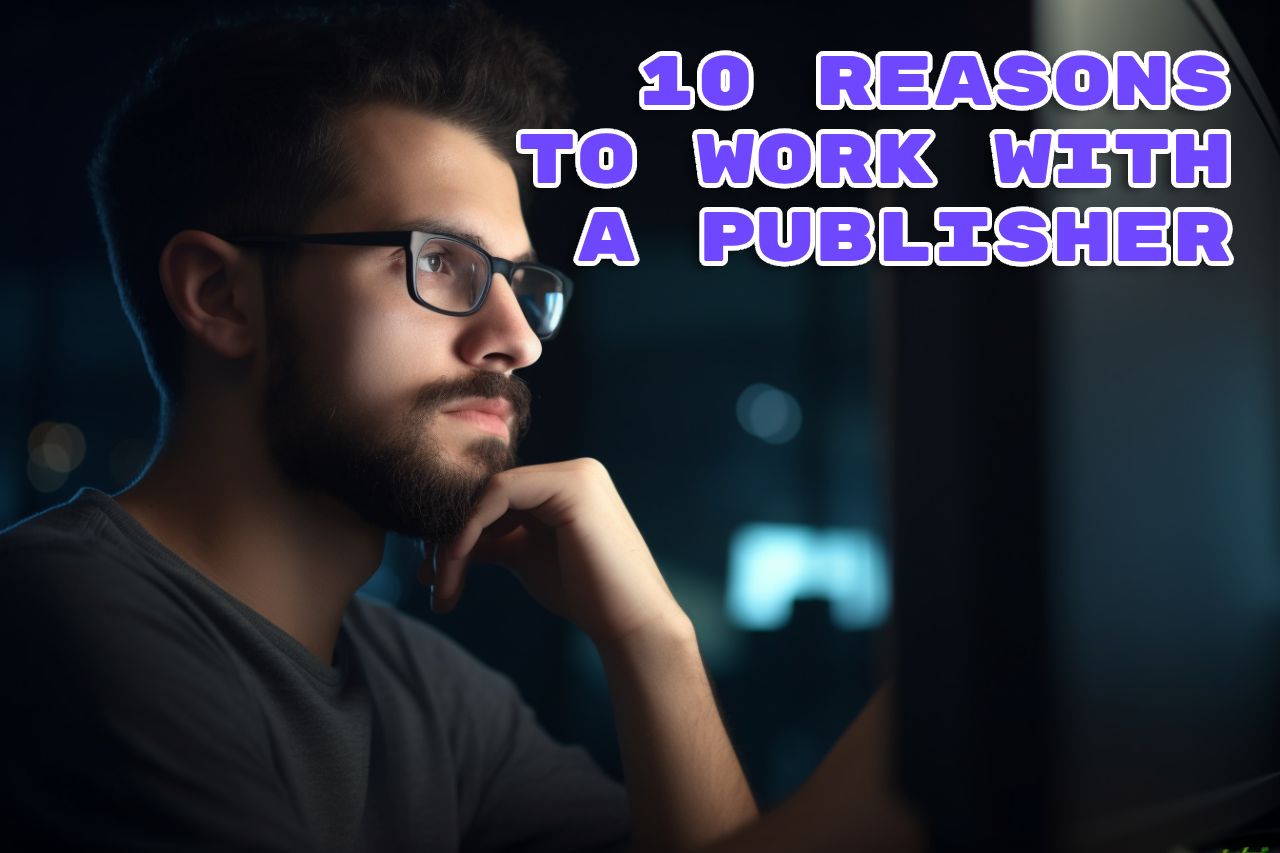In the competitive world of game development, partnering with a publisher can provide numerous advantages for developers.
From financial support to marketing expertise, publishers offer a range of benefits that can elevate a game’s success.
This article explores ten compelling reasons why game developers should consider working with a publisher.
10 Reasons to Work With a Publisher
Partnering with a publisher can offer significant advantages for game developers.
Here are ten compelling reasons why working with a publisher should be considered:
1. Financial Support
Developing a game requires significant financial resources.
Game publishers can provide the necessary funding to support game development, including covering production costs, marketing expenses, and other financial aspects.
This financial backing allows developers to focus on creating their vision without worrying about the monetary burden.
2. Marketing Expertise
Publishers bring valuable marketing expertise to the table. They deeply understand the gaming market and can develop effective marketing strategies to promote the game.

Plants can leverage their industry knowledge and resources to enhance the game’s visibility and reach a wider audience.
For instance, publishers like Electronic Arts (EA) have a proven track record of executing successful marketing campaigns, such as the highly anticipated release of the FIFA series, which leverages their marketing expertise to engage a massive global audience and drive significant sales.
3. Broad Network and Industry Connections
Publishers have established networks and connections within the gaming industry.
These connections can open doors to collaborations, partnerships, and alliances that would otherwise be challenging to attain independently.
By tapping into the publisher’s network, developers can gain access to valuable resources, support, and opportunities for growth.
4. Distribution Support
Publishers excel in the distribution of games.

They have the infrastructure, expertise, and connections necessary to ensure the game’s wide availability across various platforms and markets.
From securing deals with digital distribution platforms to organizing physical distribution, publishers can efficiently handle the logistics, making the game accessible to a broader audience.
5. Risk Mitigation
Game development involves inherent risks, both financial and operational. By partnering with a publisher, developers can share these risks, reducing the burden on their shoulders.
Publishers can provide support in mitigating risks, offering guidance, resources, and expertise to navigate challenges effectively.
For example, the partnership between independent studio Supergiant Games and publisher Warner Bros. Interactive Entertainment for the game Hades showcases how risk sharing with game publishing companies can provide financial stability and support during video game development, ultimately leading to critical acclaim and commercial success.
6. Professional Quality Assurance
Ensuring a high-quality game is essential for success.
And game publishers bring professional quality assurance (QA) teams that rigorously test and polish the game to deliver a seamless and enjoyable experience.

Their expertise in identifying and addressing bugs, glitches, and performance issues greatly improves the final product’s overall quality.
Check out this “What Do Video Game Publishers Do?” article to learn more about video game publishing work and the differences between publisher vs developer!
7. Access to Established IPs
Partnering with a publisher can provide access to established Intellectual Properties (IPs).
This opens up opportunities to develop games based on popular franchises or characters, instantly attracting a dedicated fan base.
For example, the partnership between developer Telltale Games and publisher Skybound Entertainment for the game The Walking Dead showcases the potential for success when developing games for established Intellectual Properties under the guidance of a publisher.
8. Creative Guidance and Feedback
Video game publishers can offer valuable creative guidance and feedback to developers.

Their experience in the game industry allows them to provide insights into game design, mechanics, storytelling, and overall player experience.
Collaboration with publishers often leads to a symbiotic relationship, where the publisher’s expertise enhances the developer’s vision, resulting in a stronger final product.
9. Legal Support
Navigating legal complexities can be challenging for independent developers.
Publishers have legal teams that can provide necessary assistance, ensuring compliance with regulations and protecting the developer’s intellectual property.
For instance, when the indie developer Fez faced legal issues regarding ownership and distribution rights, the publisher Devolver Digital provided essential legal support, helping to resolve the situation.
10. Better Reach and Visibility
Publishers can significantly enhance the reach and visibility of a game through their established networks and resources.
With their expertise in marketing and distribution, publishers can amplify a game’s exposure to a wider audience.

One notable example is the indie game Undertale, which gained widespread recognition and success after being published by a prominent indie publisher.
The publisher’s marketing efforts and distribution strategies propelled the game to new heights, reaching a larger audience than the developer could have achieved independently.
Conclusion
Partnering with a publisher offers game developers numerous advantages that can greatly impact a game’s success.
From financial support and marketing expertise to distribution capabilities and risk mitigation, publishers bring a wealth of resources and knowledge to the table.
By considering the ten reasons outlined in this article, game developers can make informed decisions and increase their chances of creating and delivering successful games to a wide audience.
Loading survey...

